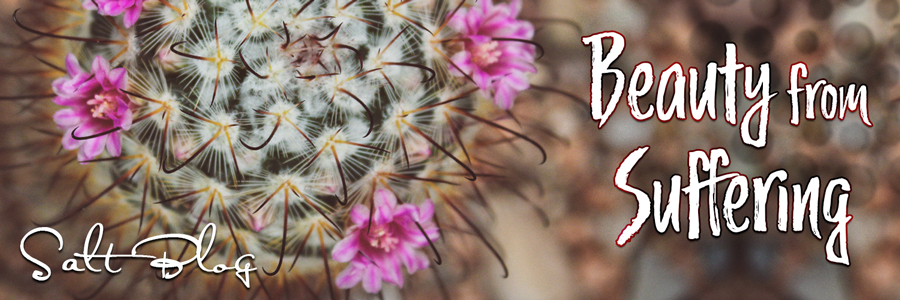Just before Christmas break, I was talking to one of my closest friends about reading material. I was feeling a bit spiritually dry, and hoping for something to read that would refresh me and help me engage with God more deeply. Then I noticed on my bookshelf a book I’d bought but hadn’t read yet, I Loved Jesus in the Night: Teresa of Calcutta--A Secret Revealed by Paul Murray.
I’ve always looked up to the woman we call Mother Teresa. Of course, so does the rest of the world. But I like her especially because she is such an amazing example of loving people unconditionally and loving God deeply. She must have been especially close to God, right?
This book, written by a priest who knew her well, shows a side of her that we don’t usually hear about. She wrestled for long periods of time where she didn’t feel God’s presence or hear Him speaking to her in any way, despite drawing others closer to Him. Her faith sustained her, knowing in her heart that Jesus loved her intimately. But she couldn’t feel it and often wondered if she was even doing what God wanted her to be doing. The author notes that she experienced what is sometimes called “The Dark Night of the Soul” based on the writings of Spanish mystic St. John of the Cross. I’m still seeking to understand this concept, but from what I can tell, the “dark night” is a period of suffering that isn’t related to any particular event or circumstances, but is a spiritual crisis in someone’s journey of faith.
I’ll let you read the book to find out how Mother Teresa’s “dark night” experience unfolds, but I will say that reading it was both challenging and encouraging. Challenging because in the theology I am used to, God is always speaking to us and affirming us. But that doesn’t seem to always be true, even in the lives of people so deeply in love with him. So it is scary to think that even Mother Teresa could experience this struggle. But it’s also encouraging. As it says in Romans 5:3, “Not only so, but we also glory in our sufferings, because we know that suffering produces perseverance; perseverance, character; and character, hope.” And we get to know Jesus better-- Philippians 3:10: “I want to know Christ-- yes, to know the power of His resurrection and participation in His sufferings.” As Mother Teresa persevered in faith even in periods of not feeling His presence, she continued to bless others and bring them closer to Him. She continued to pray, trusting that He was near. That she went through this is also encouraging to me, because it makes her more human. More real. More like you and me. She wasn’t just the “super-saint” that we make her out to be. And if she can wrestle with this darkness and prevail by the power of her faith in God, so can we.
Sue Monk Kidd, the author of The Secret Life of Bees, writes about a similar personal journey in her book When the Heart Waits. My counselor made me read it several years ago. Reflecting on this topic, I picked it up today, and opened to a section about darkness. She has this to say about the darkness that is difficult to bear but is a positive part of our spiritual journey:
“In the Bible darkness is often used as a metaphor for sin or a lack of God’s presence. There are, however, references to darkness as a place where God dwells. ‘The Lord has set the sun in the heavens, but has said that he would dwell in thick darkness’ (1 Kings 8:12). ‘He made darkness his covering around him’ (Ps. 18:11)
God is in the dark. Traditionally this imagery suggests the ultimate unknowability of God. But when I read it from within the dark layers of my cocoon, I perceived a meaning quite different. The verses filled me with an affirmation that God enters the thick darkness of every creature. A voice said to me, “God suffers with you. God weeps with you. God lives your darkness. This is the recognition that turns our darkness into a shining thing.”
Father Murray acknowledges that most people don’t undergo this kind of suffering as intensely as Mother Teresa did. I don’t know why she had to bear it. But I do believe that everyone experiences suffering at some time in their lives, if they live very long at all. It can take many different forms and come from different origins. Sometimes it’s of our own making, the consequences of our choices. Other times it is at the hands of other people, or disease, accidents, or the breaking of relationship with someone. It can take the form of grief, depression, confusion, fear, or other difficult experiences. No matter the origin or form, it is painful. Sometimes crushingly so. But I believe it can also draw us closer to God, if we face it instead of running from it.
This is baffling to the world, but beautiful to those of us who have experienced His love in the midst of our suffering. Don’t fear the darkness. He is there in it , with you.
About the Author
Jessie is an educator, currently in the role of academic advisor at a charter school after teaching there and overseas. She is also a novice writer, with several books in various stages and a (long-neglected) blog about the journeys of women. She is very excited to join the CitySalt blog team. She has been blessed by a few communities of Christian writers that have encouraged her dream. She lives with her trusty sidekick cat, Arwen in the foothills of South Eugene, where she can go hiking within minutes of the sun coming out from behind the clouds.


